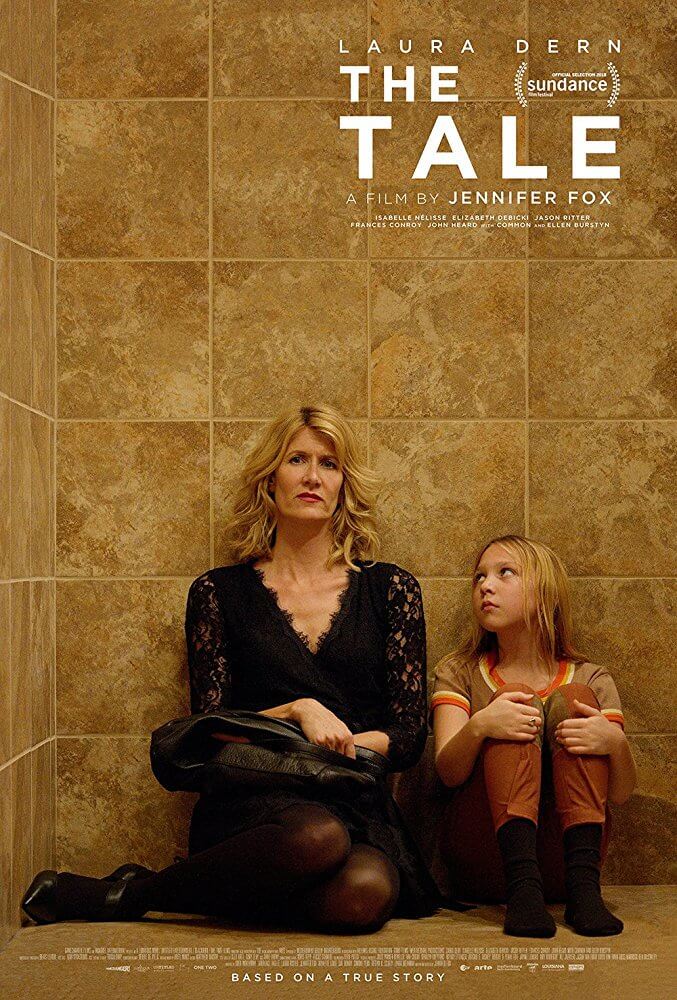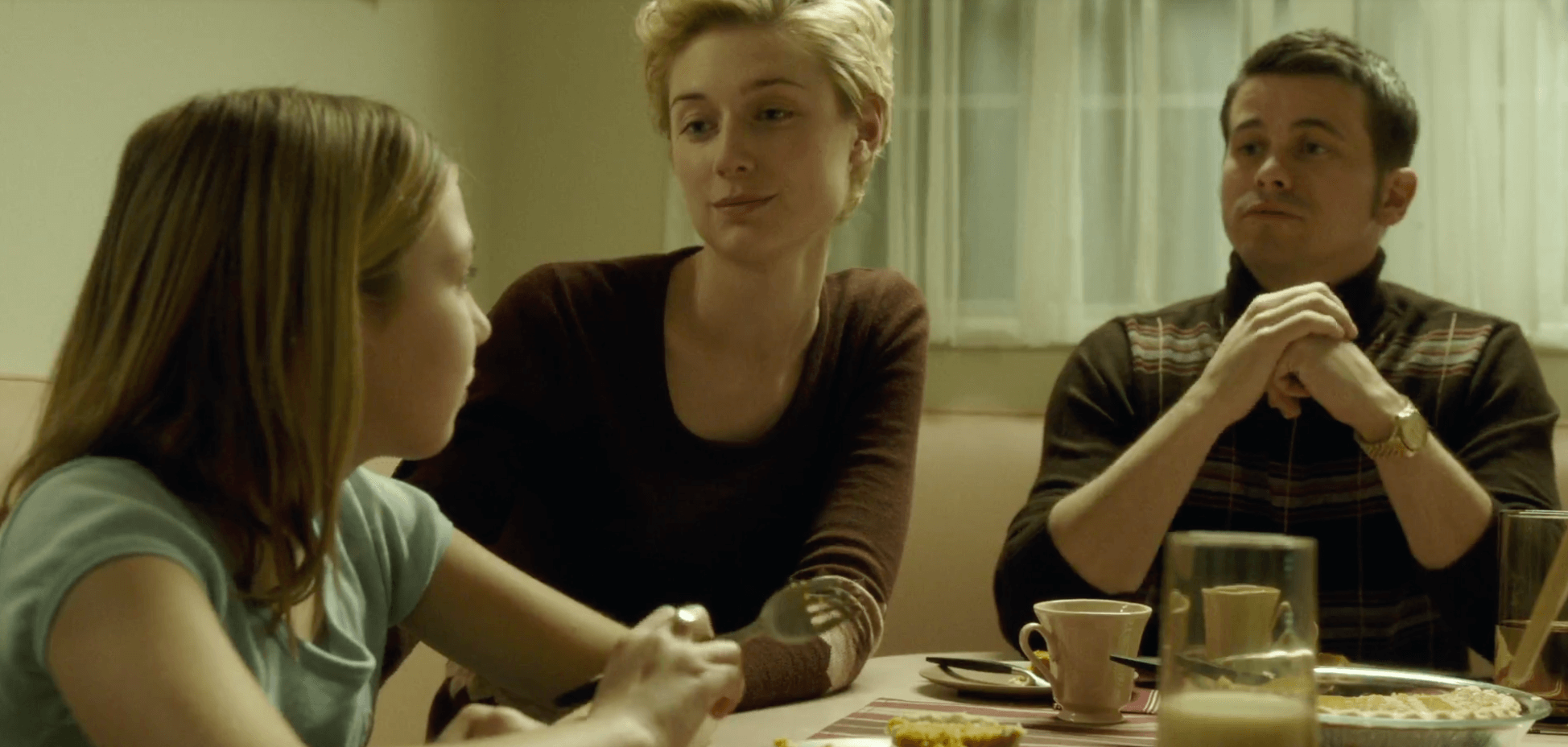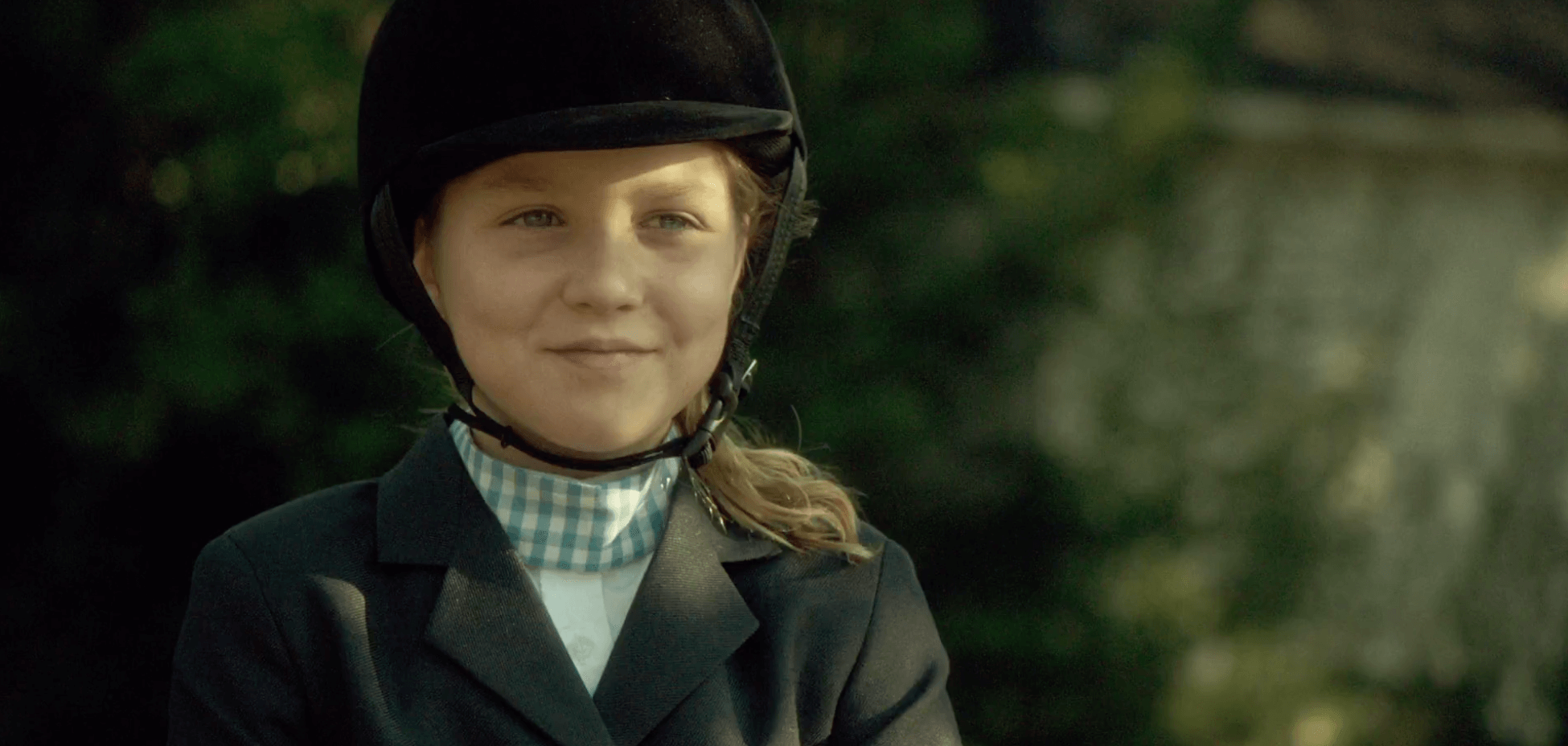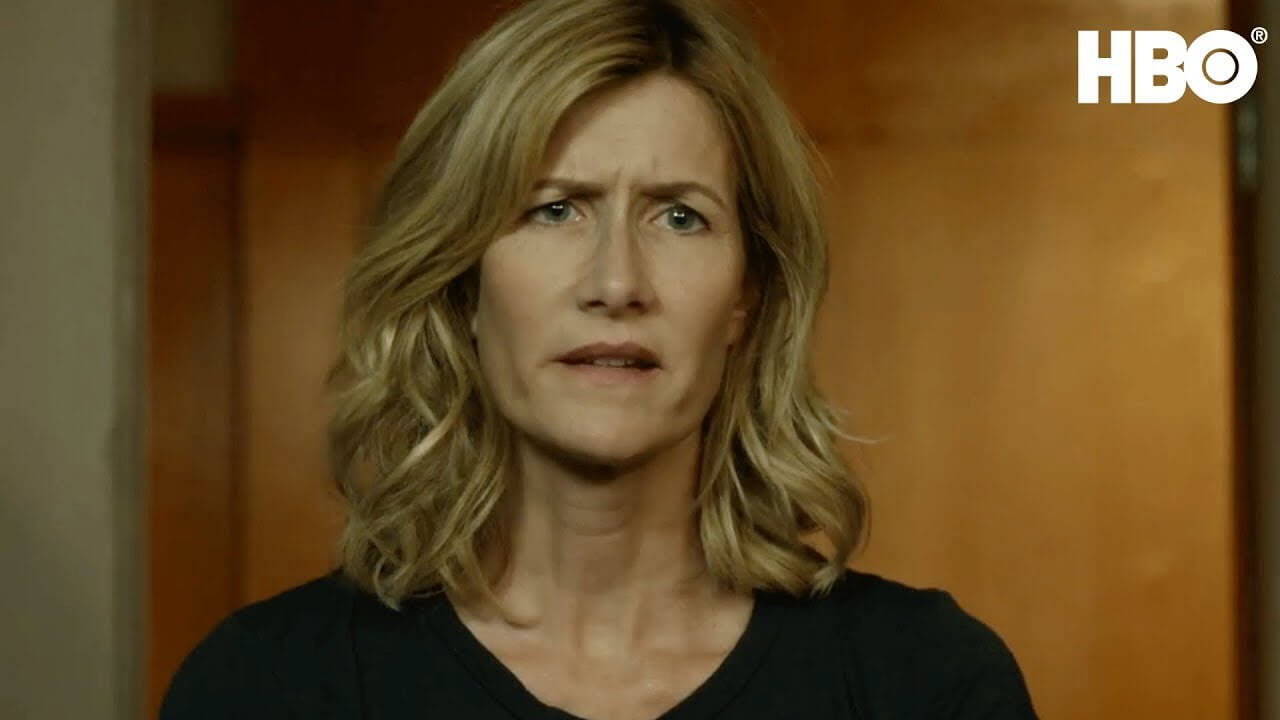When I first saw THE TALE, a film produced and directed by Jennifer Fox based on her own story of childhood sexual abuse by a former coach, I could not shake how similar the depiction of her experience was to One Love’s core film, Escalation, which follows the story of Paige and Chase, a fictional college couple who’s abuse relationship escalates and ends in tragedy.
Though Escalation depicts a college-aged abusive relationship, parts of the storyline and the language really paralleled those in THE TALE. Also, the more I thought about it, the more I saw how the grooming behaviors Jennifer’s (or “Jenny” as we learn about her 13-year-old self) track coach, “Bill,” used to coerce her into a sexual relationship are incredibly similar to the behaviors Chase, the abusive partner in Escalation, uses toward Paige in the beginning stages of their relationship.
With these realizations, I wanted to dig deeper into this connection between child sexual abuse and relationship abuse – issues that are historically addressed separately. When we talk about relationship abuse, we focus on the abusive partner’s intent to maintain power and control over their partner. In cases of child sexual abuse, we’re more inclined to talk about the actual physical abuse taking place, or the specifics of the relationship. But if you think about it, a victim of child abuse is under the age of 18 and the perpetrator is an adult, which means that there is an implicit power dynamic at play – and that a perpetrator of child sexual abuse is also acting with the intent to maintain power and control, just like an abusive partner.
To explore this connection between THE TALE and Escalation further, I compared the two films to see what ties I could find.

All photos courtesy of The Tale, HBO
Learn more about THE TALE and receive free resources to guide a conversation by signing up here and tune in on May 26th on HBO.
LANGUAGE
When I first saw THE TALE, I was taken aback by how similar the language was to the language I hear in Escalation. It helped mirror the two relationships – showing us that people who abuse children use the same language that people who abuse their partners of appropriate age use.
First, there’s language around jealousy that is always excused as love. In Escalation, it’s “I love you too much to watch other men watching you.” In THE TALE, it’s “I want to save you from all those stupid young boys out there. I think you are perfect.”
Both films also show an abuser convincing someone that they are the only one who loves them: In Escalation, it’s Chase telling Paige she “shouldn’t hang out with sluts like Meg,” In The Tale, it’s, “Your parents are just afraid of the world…they can’t accept that you are becoming a woman…they can’t see you in the way that we can. They’re not brave like you are.”
Both also show the abuser’s fear of losing control over this person. In Escalation, it’s “I’d die without you” vs. The Tale’s “I love you. Don’t leave me, I’ll do anything.” Both of these scenes occur when Paige and Jenny are thinking of, or are breaking up with, their abuser.

All photos courtesy of The Tale, HBO
GROOMING BEHAVIORS = ABUSIVE BEHAVIORS
ISOLATION
At One Love, we define isolation as unhealthy when a partner keeps you away from friends, family, or other support systems. Though it seems we would recognize isolation early on, both Escalation and The Tale show how gradually it can occur and why we may not realize it happening at the time. In The Tale, the very first scene the group goes for a run together, the other two girls end up falling off and Jenny and Bill find themselves running alone to the end of the trail. Obviously, Bill doesn’t sexually abuse Jenny here; they’ve just met and it would be easy for her to tell an adult that this stranger violated her. Similarly, in one of the early scenes in Escalation, we see Chase convince Paige to skip “girls night” and hang out with him instead. Early in a new relationship, this isn’t necessarily an immediate red flag to Paige, who is flattered and wants to spend time with her new boyfriend. Again, however, we see both isolation tactics escalate throughout the films to the point where Bill has Jenny spend a full night at his house completely alone, and Chase tells Paige her friends aren’t people worth spending time with.
MANIPULATION
One Love defines manipulation as an unhealthy behavior when a partner tries to influence your decisions, actions, or emotions. Obviously, someone who manipulates you may not have your best interests at heart and wouldn’t make a good partner, mentor, coach, etc. The bigger problem here is that we’re not taught how to recognize what manipulation actually looks like, and that people who manipulate their partners, or children, usually first come across as approachably eager, nothing you’d think of as potentially dangerous. If someone is manipulative right off the bat, we wouldn’t trust them and would likely leave the relationship. No matter your age, this behavior is much more difficult to spot than we think and both Escalation and The Tale do a great job of showing that.
In Escalation, we see subtle examples of manipulation when Chase meets Paige outside of the gym or outside of her class even though she didn’t ask him to, grow into behaviors like following her home one night after a break-up to manipulate her into getting back together. It’s important to recognize that even though skipping plans to hang out with a partner seems harmless at first, Chase is really doing it with an intent to influence Paige’s actions and decisions and isn’t healthy or okay.
THE TALE shows us how important this subtle manipulation is in cases of child sexual abuse, as well. Adult Jennifer, as the film’s director, emphasizes that it was important to her to show that Bill made her feel special. He did many things along the way that any young person would view as such: though he was her track coach, he came to watch her in a riding competition to see how much she’d improved; he asks her, and neither of the other girls there that summer, to join his running team in the fall because he said she had potential. The Tale makes it easy to see how this initial attention turned into subtle manipulation. Slowly yet suddenly, Jenny was doing things she wasn’t truly comfortable with, like staying over at Bill’s house for dinner without another adult. Bill had purposefully manipulated her into thinking that these were actually her decisions – even going as far as threatening to call someone to come get her when she seemed nervous, knowing that would make Jenny want to prove she could stay alone. His intent from the beginning was not to simply give her attention, but to draw her in and exploit the power he had over her.
JEALOUSY
At One Love, we recognize that while jealousy emotion that everyone experiences, it becomes unhealthy when someone lashes out or tries to control you because of it. In Escalation, we often see Chase respond aggressively to his feelings of jealousy. At one point, he puts his hands on Paige’s neck (side note: strangulation of any kind is a MASSIVE red flag that the relationship may turn fatal) because he believes that she is cheating on her when he sees her walking around on campus with another male friend.
In THE TALE, we see more subtle but still noticeable hints at Bill’s jealousy, and how he responds by manipulating Jenny more because of it. When Jenny writes to Bill about how she met a new friend at home (a boy her own age that she saw as a potential boyfriend), Bill clearly took notice and started slowly making comments implying that boys her own age wouldn’t be good for Jenny. He says things like, “I want to save you from all those stupid young boys out there. I think you are perfect.” Then, during one scene that we see as one of the first times Bill does sexually abuse Jenny, he says, “No young boy would ever do this for you. But I’m not giving up. I’m ready for you.” In response to his own jealousy that Jenny might actually enjoy being with friends or boys her own age, Bill only becomes more manipulative and isolates Jenny further.
DEFINING LOVE
Jennifer really wanted THE TALE to portray that, at the time, she genuinely believed that her relationship with Bill was one filled with love – even if she didn’t consider it to be a “normal” boyfriend-girlfriend relationship. Admiration and trust are such vital parts of any coach-athlete relationship, and her relationship with Bill seemed like just an extreme version of that. We all want validation from important people in our lives, like a coach, and it feels good to feel special. Bill made Jenny feel special by giving her gifts, praise, and maybe most importantly, attention – more attention than the other girls. It’s natural for Jenny to enjoy this special treatment – but specialness does not equal love. In fact, giving extra attention or gifts to a partner or being over-the-top nice, especially early on in a relationship, is often a red flag of abuse.
THE TALE shows that these lines between an adult figure giving a child special attention out of genuine interest or belief in them, and grooming behaviors of child sexual abuse, are much more blurred than we’d like to think. This is partly why Jennifer did not see herself as a victim at the time, and it wasn’t until she was in her forties that she even acknowledged this experience as abuse.
Many survivors of relationship abuse describe their experience similarly to Jennifer. Even if they know now that the relationship was abusive while they were in it, it’s important to know that those in abusive relationships often feel love for their partner which makes it very difficult to leave the relationship. Whether it’s because it’s so easy for us to remember the good times or because someone’s abusive partner might be an otherwise popular and genuine person in the community, there are many reasons why people who experience abuse feel this way and have trouble leaving. The National Domestic Violence Hotline says, “For many victims, feelings of love for an abusive partner can also be a survival technique. It is very difficult for a non-abusive person to understand how someone they love, and who claims to love them, could harm or mistreat them. To cope, they detach from their pain or terror by subconsciously beginning to see things from the abusive partner’s view.”

All photos courtesy of The Tale, HBO
WHAT NOW?
So what can you do? We’re all potential bystanders here, whether we know it or not. At One Love, our education on how to help a friend or a child who may be in an unhealthy relationship focuses on understanding how to open up the door to a conversation and to keep it open even when it gets tough. When I talked to Jennifer recently about what she thought could have helped her, she really emphasized that same strategy. She said, “It would have been really important if I could’ve talked to somebody – anybody. There was nobody talking to me about my feelings or thoughts, so then Bill and Ms. G [who was close with Bill and played a role in Jenny’s abuse] were the only ones I had.” The ability to talk to an adult without being judged or talked down to is crucial for young people – whether they may be uncomfortable in their relationship with another adult or with a partner their own age. View our Guide To Talking to Young People for more tips.
BYSTANDERS – TRUST YOUR GUT!
The hardest part of any conversation about abuse is recognizing that you may be someone who saw signs that something was off, but didn’t know your role or how to intervene when you saw them. In Escalation, one of the most important lines comes from a detective after interviewing Paige and Chase’s friends at the end of the film, who says, “they all saw something. They just didn’t know what they were seeing.” That’s why One Love is so intent on creating tools constantly about how to be a supportive friend, or how to be a supportive parent/adult.
Though we want to believe that we would easily be able to recognize child sexual abuse when we see it, The Tale does a really honest job of showing how hard it truly is to do so. There is a specific instance where Jenny’s mother has a gut feeling that something is off when Bill picks up Jenny for the weekend. (In hindsight, she literally says, “all my antennae went off.”) While as a viewer you want to just scream to her “trust your gut!” it’s also easy to see Jenny’s father’s reassurance that Bill’s gestures were kind, and nothing to take too seriously.
Just like Paige’s friends who were never taught the signs of relationship abuse, Jenny’s parents weren’t taught to recognize signs of abuse, so why would they ever suspect that might be happening to your child? We need to educate people of all ages what these signs are, and encourage each other to trust your gut when it comes to recognizing red flags in any type of relationship.
CONVERSATIONS MOVING FORWARD
Bill’s relationship with Jenny was clearly abusive because of their age difference – but I think an important question to ask ourselves is, would we still say the same if Jenny were 15, 17, or 22 at the time? This is why it’s so important that we continue to break apart these behaviors, not just the people, to get at the root of abuse. These conversations need to continue, and there’s so much more to explore about the connection between these two important topics.
Tune in and watch THE TALE on HBO May 26th and host your own discussion circle with free materials by signing up here: bit.ly/OneLoveFdnDiscussionCircle. The film will also be available on HBO GO and NOW and other HBO channels following the premiere. Follow the conversation online by using #TheTale.
Browse by Category

How to Practice Allyship Using the 10 Signs
During the month of June the United States observes both Juneteenth and Pride Month. Juneteenth commemorates the end* of slavery…
Hope After Abuse: What I Wish I Knew About Relationships In College
As a freshman in college – my first real time…
A Crash Course In Handling Rejection
The spring/summer cusp is an exciting time of year: long…
What Movie Prom Scenes Can Teach Us About Relationships
Prom season is upon us and millions of high school…
Ways We Self-Sabotage In A New Relationship After an Unhealthy One
You did it. You ended your unhealthy relationship. You grieved.…














